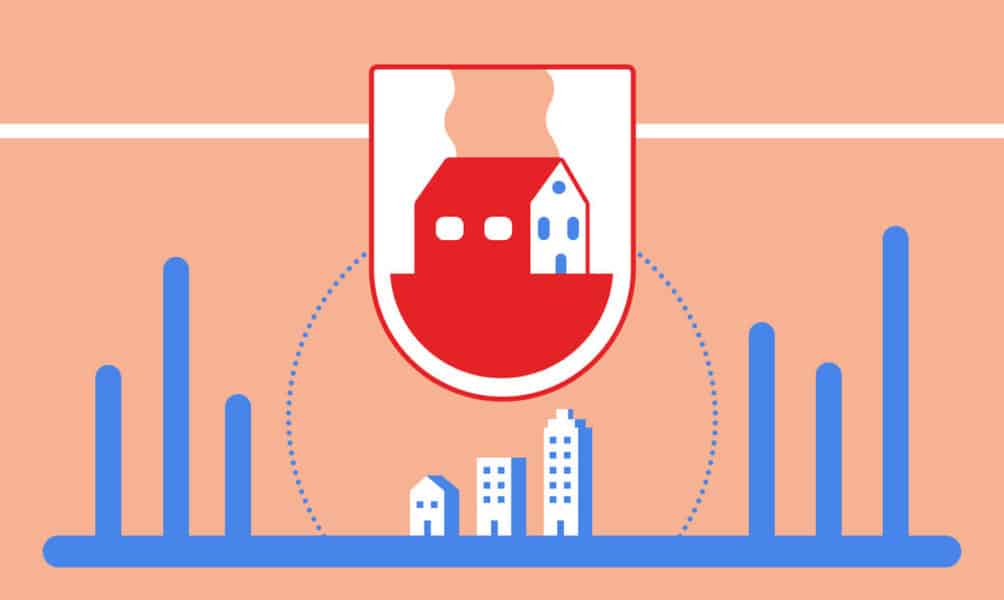How to Protect Your Assets as an LLC Owner
Written by: Carolyn Young
Carolyn Young has over 25 years of experience in business in various roles, including bank management, marketing management, and business education.
Reviewed by: Sarah Ruddle
For over 15 years, Sarah Ruddle has been a noteworthy leader in the business and nonprofit world.
Updated on June 8, 2025

Many entrepreneurs form a limited liability company (LLC) for their new business because of its many benefits, such as liability protection. An LLC is a separate entity from its owners or members and thus has its assets and debts.
If the LLC is sued or cannot meet its financial obligations, only the assets of the LLC are at risk, not the personal assets of the members. However, some exceptions apply to this rule – and as an LLC owner, it’s important to be aware of them.
Read on to learn how you can protect your assets.
Personal Liability Protection Exceptions
The word “limited” is part of the LLC label for a very good reason: there are exceptions to the liability protection the business entity provides. The most common exception is when an LLC member personally guarantees business financing, such as a bank loan.
Startup LLCs often fail to qualify for financing on their own, which prompts one of its owners to step up and provide personal financial backing for the loan. In these cases, if the LLC defaults, the LLC member who provided the guarantee is liable for those loan repayments.
If you cannot pay, your assets, including your home, could be at risk. Other situations in which liability protection does not apply include:
- A member injures someone in the course of business
- Members fail to pay payroll taxes or other taxes
- Members do something fraudulent or illegal that causes harm to an individual or company
- Members commingle personal and business activities, i.e., “pierce the corporate veil.”
How to Further Protect Your Assets
There are several steps you can take to keep your assets safe. We explore those steps further below.
1. Build Business Credit
Establishing business credit will increase your LLC’s chances of being approved for financing, eliminating the need for any personal guarantee. You can build business credit by obtaining a business credit card and paying it off monthly. Just be sure to pay all your vendors on time.
2. Don’t Personally Sign Contracts
The LLC, not you personally, should sign contracts with vendors and customers. This helps further establish your LLC as its entity.
3. Don’t Pierce the Corporate Veil
Be sure to separate business and personal finances. All business funds, credit accounts, and financial records should be separate from your funds and records.
4. General Liability Insurance
General liability insurance helps protect the LLC and its members from liability, even in the case of injuries.
5. Limit LLC Assets
Limit the amount of funds in your business bank account by making regular distributions to members. The fewer assets the LLC owns, the lower the risk.
6. Trusts
You and other members should consider putting your assets, even your homes, into trusts. Trusts provide robust legal protection for assets. Speak to an attorney to determine if a trust is right for you.
FAQs
A charging order is a court judgment that gives a creditor the right to receive distributions from your LLC but not to seize its assets or participate in management. It prevents creditors from forcing liquidation of LLC property.
Yes. Even single-member LLCs should adopt a written operating agreement to document ownership, financial transactions, and decision-making procedures—crucial evidence you’re treating the LLC as a separate entity.
Generally no. Creditors can obtain a charging order against your distributions, but they cannot become members or force a sale of your membership interest unless the operating agreement allows it.
Consider professional liability (errors & omissions), commercial property, business interruption, and directors & officers (D&O) coverage if you provide advice or hold a management role.
At least annually—or whenever there’s a major change in membership, capital contributions, management structure, or business purpose—to ensure it reflects current operations and preserves separation.
Keep up with state-required annual/biannual reports and fees, hold recorded member meetings (even informally), maintain separate bank accounts, and document all significant business decisions.
